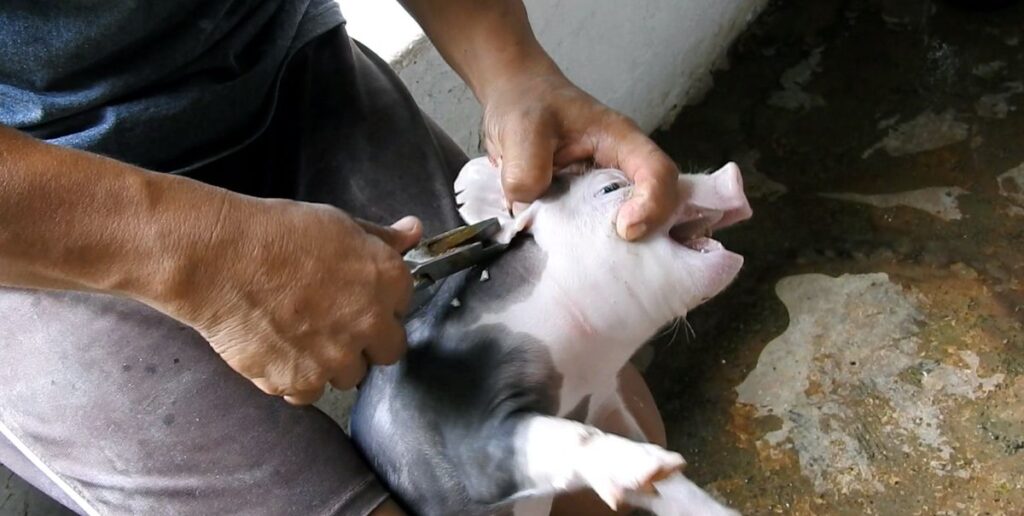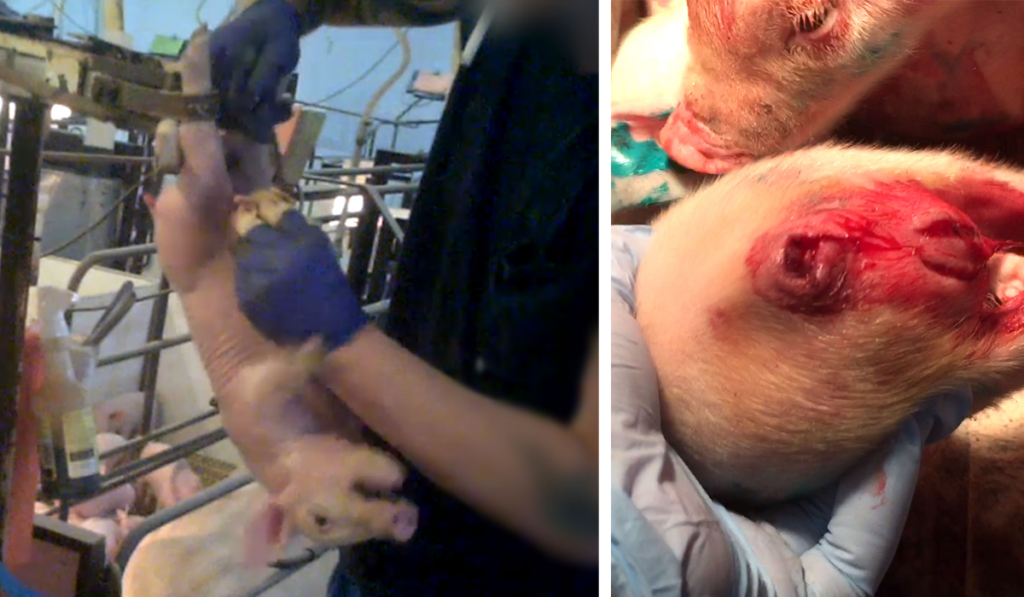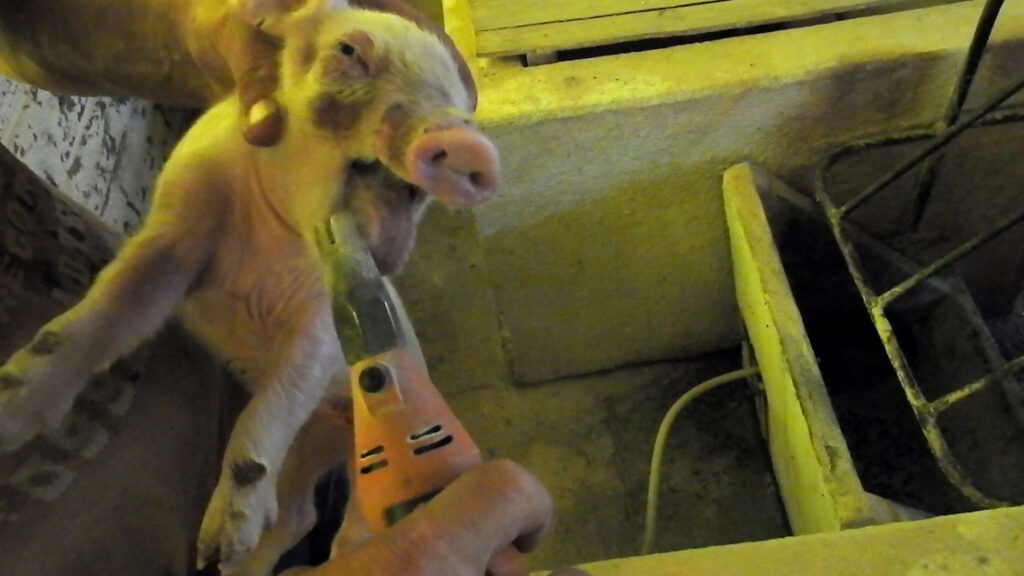You may have heard that pigs raised for meat live in extreme confinement and are slaughtered when they’re around six months old. But did you know that even the highest-welfare farms typically force piglets to endure a series of painful mutilations?
It’s true. These mutilations, which are usually performed without anesthesia or pain relief, aren’t required by law, but most farms do them to increase productivity and reduce costs.
Here are four ways the meat industry mutilates piglets:
Tail docking:
Tail docking involves removing the piglet’s tail or a portion of it with a sharp instrument or rubber ring. Farmers “dock” piglets’ tails to prevent tail biting, an abnormal behavior that can occur when pigs are housed in crowded or stressful conditions.
Ear notching:
Farmers often cut notches into pigs’ ears for identification. The location and pattern of the notches are based on the National Ear Notching System, which was developed by the United States Department of Agriculture. Other forms of identification are sometimes used, such as ear tags.


Castration:
Various undercover investigations have documented piglets screaming in pain as workers cut into the animals’ skin and used their fingers to rip out the testicles.
Castration involves removing male piglets’ testicles. Farmers castrate pigs to prevent “boar taint,” a foul odor that can develop in the meat of uncastrated males as they mature. Farmers typically castrate piglets using a sharp instrument. Some farmers tie a rubber band around the testicles until they fall off.


Teeth clipping or grinding:
Because pigs in the meat industry are housed in unnatural, cramped, and stressful environments, they sometimes bite workers and other pigs or gnaw on cages and other equipment out of frustration and boredom. To prevent injuries or damage to equipment, workers grind down or clip piglets’ sharp teeth with pliers or other instruments shortly after the animals are born.


—–
Farmers have alternatives to painful mutilations. Providing pigs with adequate space and enrichment materials, for example, reduces stress and aggression. But the industry puts profits above the animals’ well-being. The best way we can make sure we’re not supporting cruelty is by choosing plant-based foods.
Take a stand against the cruel meat industry. Sign up to learn more about mutilations and how you can fight for farmed animals today.
